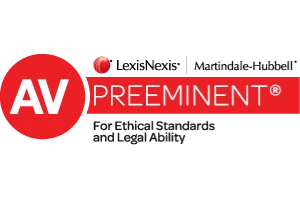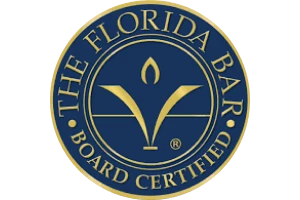Probation Violation
Facing a Violation of Probation (VOP) in Hillsborough County can lead to severe consequences, potentially impacting your freedom and future. Understanding the specific repercussions based on the nature of your violation is crucial. The following table, compiled with insights from experienced legal counsel, outlines the potential outcomes you might face in Hillsborough County courts, providing a clear picture of what’s at stake and why immediate legal representation from a seasoned attorney like W.F. Casey Ebsary Jr. is essential to protect your rights.
FAQ: Violation of Probation Answers From an Expert W.F. Casey Ebsary Jr.
Contact an experienced attorney immediately. Do not speak to your probation officer or law enforcement without legal counsel. Call W.F. Casey Ebsary Jr. at 813-222-2220 for a consultation.
Yes, even for technical violations, a judge in Hillsborough County can impose jail time. The length and severity depend on the specific violation and your history.
A technical violation involves breaking the rules of your probation (e.g., missed meetings, failed drug tests). A substantive violation involves a new arrest or criminal offense.
Hillsborough County courts typically schedule VOP hearings promptly. However, the exact timeline depends on court availability and the complexity of your case.
Yes, if the judge finds you violated probation, particularly for a substantive violation, they can revoke your probation and impose the original sentence.
Defenses vary. They might include challenging the evidence, proving a misunderstanding, demonstrating substantial compliance, or showing mitigating circumstances. An experienced attorney like W.F. Casey Ebsary Jr. can evaluate your case.
It’s possible. Warrants are frequently issued for VOPs. It’s crucial to address the issue quickly and get you in front of the judge quickly to minimize time spent in jail and the risk of arrest and incarceration.
Hillsborough County takes drug-related violations seriously. They often require intensive treatment, frequent testing, and can impose severe penalties, including jail time. Casey the Lawyer was a drug prosecutor and helps people get and stay on track.
It’s possible, but challenging. Reinstatement depends heavily on the severity of the violation, your compliance history, and the judge’s discretion. It is important to have your VOP attorney give the Judge reasons to reinstate.
W.F. Casey Ebsary Jr. has extensive experience in Hillsborough County criminal courts, is Board Certified, has an AV Rating, and is a “Super Lawyer”. His expertise can significantly impact the outcome of your VOP case. Call 813-222-2220 for expert representation.
Help With a Probation Violation in Tampa
Whether you have already violated or think you might violate the conditions of your probation, we can provide a solution. Call today at (813) 222-2220 for a free initial consultation. If it is more convenient for you, we respond quickly to your call for help via our Call For Help web submission. We are constantly checking and responding and will quickly get back to you via telephone or email.
Violation of Probation Consequences in Hillsborough County, FL
Facing a Violation of Probation (VOP) in Hillsborough County can lead to severe consequences, potentially impacting your freedom and future. Understanding the specific repercussions based on the nature of your violation is crucial. The following table, compiled with insights from experienced legal counsel, outlines the potential outcomes you might face in Hillsborough County courts, providing a clear picture of what’s at stake and why immediate legal representation from a seasoned attorney like W.F. Casey Ebsary Jr. is essential to protect your rights.
| Violation Type | Potential Consequences (Hillsborough County) |
|---|---|
| Technical Violation (e.g., missed meeting, failed drug test) | Increased probation terms, additional conditions, jail time (short-term), community service, fines. |
| Substantive Violation (new arrest/offense) | Revocation of probation, full original sentence imposed, additional charges for new offense, extended incarceration. |
| Failure to Pay Restitution/Costs | Extension of probation, potential jail time, wage garnishment, civil judgment. |
| Absconding (leaving jurisdiction) | Warrant for arrest, immediate revocation of probation, full original sentence imposed. |
| Failure to Complete Programs (DUI school, anger management, etc.) | Extension of probation, additional jail time, new conditions, potential revocation. |
Understanding Probation Violations
Navigating a probation violation (VOP) can be complex and daunting. A probation violation occurs when an individual does not adhere to the terms set by the court. These terms can include attending counseling sessions, passing drug tests, or maintaining employment. In Tampa, violating probation can lead to serious consequences, including jail time or extended probation.
Common Types of Probation Violations
Probation violations can vary, but some of the most common include:
- Failing to appear for a scheduled court appearance
- Not reporting to your probation officer as required
- Failing a drug or alcohol test
- Committing a new crime
- Not paying court-ordered fines or restitution
Top Ten Defenses to a Violation of Probation (VOP)
- Insufficient Evidence: Arguing that the evidence presented does not adequately prove a violation.
- False Accusations: Demonstrating that the accusation of a violation is false or unfounded.
- Lack of Intent: Showing that the violation was unintentional and that there was no willful disobedience.
- Compliance: Providing proof that you have actually complied with the probation conditions.
- Mistaken Identity: Proving that you were not the person involved in the alleged violation.
- Unclear Terms: Arguing that the terms of probation were unclear or misinterpreted.
- Medical Emergency: Demonstrating that a medical emergency prevented compliance with probation terms.
- Impossibility: Showing that it was impossible to comply with the terms due to circumstances beyond your control.
- Administrative Errors: Proving that an administrative error led to the accusation of a violation.
- Rehabilitation: Demonstrating ongoing efforts in rehabilitation and arguing for leniency based on these efforts.
Why Timely Legal Assistance is Crucial
Timely legal assistance can make a significant difference in the outcome of a probation violation case. When you suspect or know that you have violated your probation, acting quickly is essential. A legal expert can:
- Assess the details of your case
- Develop a strategic defense
- Represent you in court
- Help minimize potential penalties
Contact Us for Immediate Help
If you are facing a probation violation in Tampa, don’t wait. Immediate action can protect your rights and potentially mitigate the consequences. Call us today at (813) 222-2220 for a free initial consultation. Alternatively, use our Call For Help web submission for a quick response. We understand the urgency of your situation and are here to provide the support you need.
How We Can Help
Our team is dedicated to providing comprehensive support and guidance throughout the probation violation process. Here’s how we can assist you:
- Legal Advice: Offering expert advice on your rights and options.
- Court Representation: Representing you during court hearings and negotiations.
- Documentation Assistance: Helping you gather and present necessary documents and evidence.
- Ongoing Support: Providing continuous support and updates throughout your case.
Steps to Take if You Suspect a Violation
- Contact Your Attorney: The first step is to get in touch with a legal professional who specializes in probation violations.
- Document Everything: Keep detailed records of any communications, court orders, and compliance with probation terms.
- Communicate with Your Probation Officer: Maintain open and honest communication with your probation officer.
- Prepare for Court: Work with your attorney to gather evidence and prepare for your court appearance.
- Stay Compliant: Continue to adhere to all probation terms to the best of your ability.
Conclusion
Dealing with a probation violation in Tampa requires swift and strategic action. By understanding the common types of violations and the defenses available, you can better navigate this challenging situation. Remember, immediate legal assistance can greatly influence the outcome of your case. Contact us today at (813) 222-2220 for a free initial consultation, or use our Call For Help web submission for a prompt response. We are here to help you every step of the way.
Violation of Probation | VOP
Probation is community supervision with specified conditions. If you have been charged with a Probation Violation, Violation of probation, VOP or Probation Non-compliance in Florida, W.F. “Casey” Ebsary, Jr. ((813) 222-2220) can and will protect your rights. Some circuit courts have special divisions to handle violation of probation allegations.
There are two types of Probation Violation; technical and substantive. Sometimes a probation violation is a technical violation and is charged when the highly technical conditions of probation have been violated. Sometimes a VOP is a substantive violation and is charged when a new offense has been committed.
Video: What Is Probation?
Video Transcript: What Is Probation? Probation is an alternative to jail or prison. Usually, courts will impose that sentence to insure that restitution is paid to victims, drug testing conditions are met, counseling is completed, community service hours are completed, and fines and court costs are paid.
We can help you, your friend or loved one. We want to prevent or minimize time spent in jail, in either event. Standard conditions of probation include: no violations of the law, monthly reporting requirements, not changing residence or employment or leaving the county without the consent of the probation officer, submitting to random drug testing and searches, and paying cost of supervision. There are sometimes special conditions of supervision imposed by the judge including: substance abuse or mental health treatment, victim restitution, and community service hours.
Other types of community supervision include Drug Offender Probation, Sex Offender Probation, Community Control (house arrest). Violation of any community control condition, like probation violation, may revoke the status of probation and the court may impose any sentence valid for the original offense.
Video: What is a VOP?
Video Transcript: What is a violation of probation VOP? First, it’s important to remember that when probation is violated many courts do not allow for Bond when taken into custody. The defendant will remain there until presented before the court. There are two types of violations of probation. One is a technical violation a violation where some conditions such as community service hours or restitution has not been paid. The other more serious violation is a substantive violation where someone is arrested on a new charge while on probation. Either one of these violations can result in jail with no bond until the judge, prosecutor, and your defense attorney can sort it all out.
How Do Prosecutors Prove a Violation With a Drug Test?
Drug testing is often a condition of probation. This is true in both drug crimes and DUI cases. Depending on where you were placed on probation, a judge can take evidence of a failed field drug test, a lab report, and the testimony of an experienced probation officer to establish a violation of probation.
How Do DUI and Drug Crimes Prosecutors Prove a VOP Using the Results of a Failed Drug Test?
Here is an example of how courts handle allegations of drug use for people on probation. In Tampa drug crimes and DUI cases, courts may require appearance of laboratory witnesses to authenticate a failed drug test. Queior v. State, 157 So. 3d 370, 373 (Fla. 2d DCA 2015), rev. granted, No. SC15-367, 2015 WL 1894002 (Fla. April 14, 2015). The Tampa Bay court of appeals found “testimony about the field test results was not competent, nonhearsay evidence that [the defendant] Mr. Queior had used an opiate in violation of his probation.” Queior, 157 So. 3d at 374″ The court may have reasoned that holding that because the probation officer is not a chemist who could give expert testimony sufficient to explain the science behind the test or render an independent expert opinion regarding its reliability, his testimony was not competent.
However, the state prosecutors regularly seek to prove a violation of probation using the results of a failed drug test by calling the probation officer from the Department of Corrections to testify regarding the conditions of probation. The probation officer then testifies as to what he or she did and observed when collecting the urine sample from the defendant and administering the presumptive “field” test, along with the test’s positive indication of drug use. Some Florida courts have concluded, “We are satisfied that in the context of a probation revocation hearing, the [lab] . . . report qualified as sufficiently reliable prima facie evidence that [defendant] appellant had tested positive for illegal drug use.”
“Florida courts seemed to have generally accepted that the probation officer who conducted the presumptive drug test could testify to the results at the VOP hearing, so long as the officer had the training or experience necessary to understand the test and interpret the results.” In felony cases involving the Florida Department of Corrections, the field test in confirmed by a laboratory test. These tests are referred to as gas chromatography/mass spectrometry or immunoassay tests. “[T]he lab report is introduced as hearsay, which . . . is admissible in a violation of probation hearing.”
“In Florida, however, the Department of Corrections [also] appears to always confirm the result of the field test by sending the sample to a laboratory for independent testing (using an even more accurate and sophisticated technology). This is clearly the better and more widely accepted practice. See Cathryn Jo Rosen, The Fourth Amendment Implications of Urine Testing for Evidence of Drug Use in Probation, 55 Brook. L. Rev. 1159, 1167-68 (1990) (“Professionals in the field generally recommend that screening test results be confirmed through the use of [gas chromatography/mass spectrometry] or one of the other confirmatory techniques in situations in which positive test results ‘have an impact on the life, liberty, property, reputation, or employment of the person being tested.’” (quoting Council on Scientific Affairs, Scientific Issues in Drug Testing, 257 JAMA 3110, n. 24 (1987))). Of course, “confirmatory tests are expensive[,]” which is why “in some jurisdictions, probation officers have sought to revoke probation on the basis of either a single, unconfirmed [screening] test, or a second, ‘confirmatory,’ [screening] test using the same method on the same urine sample.” Rosen, Supra, at 1168.”
What Is the Science of Drug Tests Used in Florida Courts?
To be used against people in court in a violation of probation hearing, the prosecutor must prove that a probationer used or possessed illegal drugs. Usually, Florida Criminal Courts require three or four things: 1) a failed drug test; 2) given by a qualified probation officer; 3) a lab report; and sometimes 4) testimony of a laboratory representative.
What Is the Scientific Basis for Laboratory Chemical Testing for Drug Use?
Here are more details of the science used by prosecutors to prove violations alleging VOP for a failed drug test. These tests are referred to as gas chromatography/mass spectrometry or immunoassay tests. “[T]he lab report is introduced as hearsay, which . . . is admissible in a violation of probation hearing.” “An immunoassay test or, more properly “immunochemical assay” test, detects a “drug or its metabolites in the urine” because the substance acts as “an ‘antigen,’ combining with antibodies to the drug to form antigen-antibody complexes that can be detected” by a substance used in the laboratory or drug testing kit. Zeese, Drug Testing Legal Manual ‘ 2:23 (2d ed.). “There are three basic types of immunoassays: enzyme immunoassays, radio immunoassays, and fluorescent immunoassays.” Id. “Immunoassays have been in existence since the 1950s and have been used to analyze biological fluids for low levels of enzymes, hormones, and drugs.”
Source: Bell v State, Case No. 5D14-1569 (Fla 5th DCA 2015).
Help With a Violation
Whether you already have or think you might violate the conditions of your probation, we can provide a solution. Call today at (813) 222-2220 for a free initial consultation. If it is more convenient for you, we respond quickly to your call for help via our Call For Help web submission. We are constantly checking and responding, and will quickly get back to you via telephone or email.









